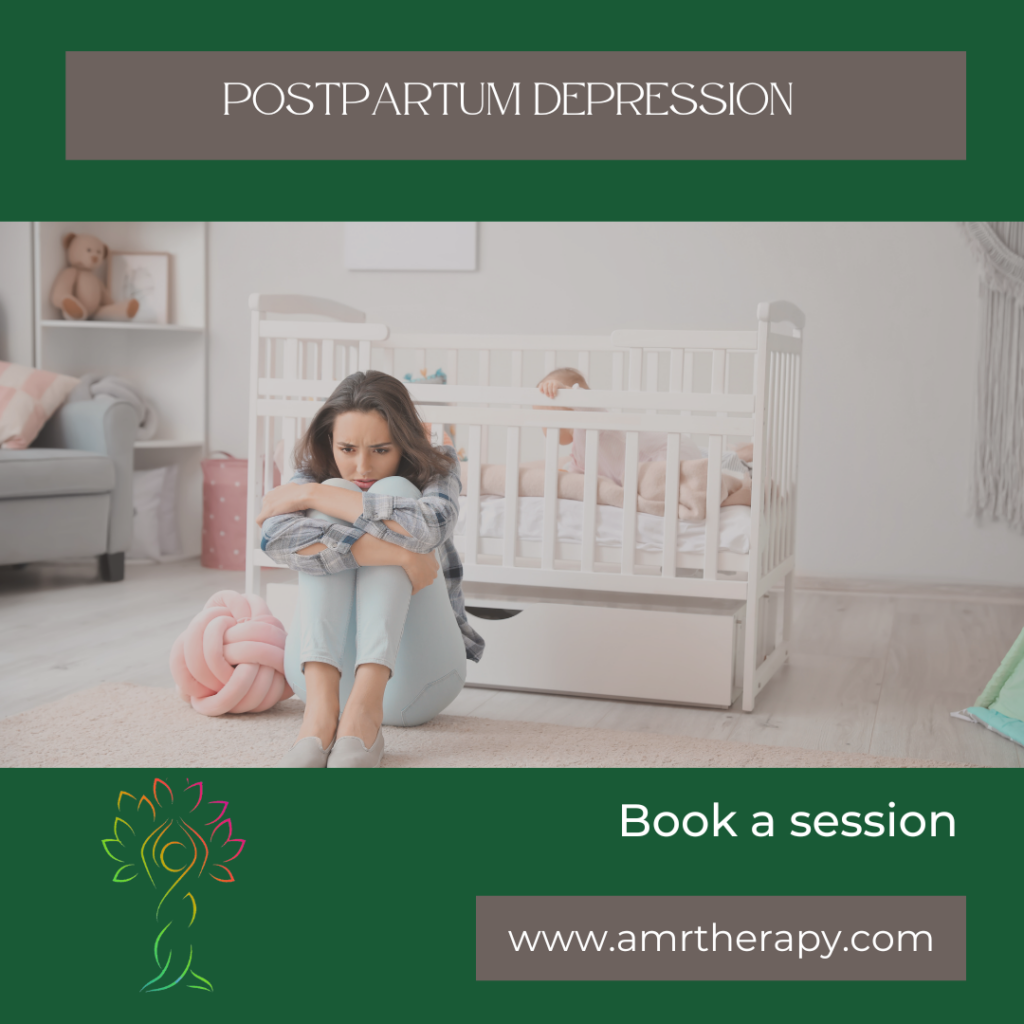![]()
Baby Blues and Postpartum Depression
Becoming a mother is a wonderful experience, full of emotions, planning and many changes in a person’s life. However, it can also be an exhausting process, where a person can feel extremely overwhelmed by so many doubts and worries, especially if it is the first time that you have a baby.
There are women who, in addition to this, can feel extreme sadness, feelings of loneliness, isolation, drastic changes in mood, and crying spells. If you or a loved one are experiencing these symptoms after having a baby, you may be experiencing what is known as postpartum depression.
One in seven women experience postpartum depression after giving birth, which is a type of depression that occurs due to a combination of hormonal, emotional, physical, social, and even economic changes.
It is important to mention that not only women who have a baby can experience depression. It can also affect adoptive or foster parents, because having a baby, no matter how much you may want it and love it, involves a strong change in the lifestyle you were used to.
This can also cause terrible feelings of guilt in a person, since nobody prepares us for this situation, but, on the contrary, we tend to think of motherhood as something magical where there can only be happiness.
The more information there is about this situation, the better we can help people who may be suffering from postpartum depression. Unfortunately, there are times when family members do not know how to deal with this situation, and even when women themselves may not even realize that something is wrong.
Having postpartum depression does not mean that you are a weak person, or that you are a terrible mother, it just means that you need help to adjust to this new change in your life.
Three different types of depression have been identified that can occur after having a baby, ranging from mild to more severe symptoms.
- Baby “blues”. Baby blues are symptoms of melancholy that often occur in the first few days of having a baby and can last up to two weeks. It affects between 50% and 75% of women after giving birth. Some of the symptoms include sadness, anxiety, crying spells for no apparent reason, mood swings, and trouble sleeping, among others. They usually go away without any treatment, and it’s important to seek support from your partner, family, and friends.
- Postpartum depression. Unlike baby blues, postpartum depression lasts longer and has more severe symptoms. You may experience drastic changes in your mood, frequent crying, irritability and exhaustion, feelings of guilt, anxiety, and an inability to perform daily tasks, care for your baby, and even care for yourself. Symptoms can appear weeks after delivery or gradually, and last up to a year. Postpartum depression can also cause fear of not being a good mom, problems bonding with the baby, panic attacks, thoughts of hurting yourself or the baby, and suicidal thoughts. If you are experiencing these symptoms, it is important that you get treatment as soon as possible. Psychotherapy and antidepressants can help you overcome this depression.
- Postpartum psychosis. Although postpartum psychosis is a rare condition, it can develop from the first week after giving birth, with severe symptoms that require emergency treatment. Symptoms of postpartum psychosis include hallucinations and delusions, obsessive thoughts about the baby, paranoia, feeling confused and lost, hyperactivity, mania, thoughts of harming yourself or the baby, and suicidal thoughts, which can be highly likely to occur. Treatment of postpartum psychosis requires hospitalization, psychiatric medication, and psychotherapy.
If you just had a baby and are having trouble adjusting to this new stage in your life, please contact us as soon as possible. At AMR Therapy and Support Services we have professionals specialized in managing postpartum depression and the difficulties in adapting to this new stage of life. Schedule an appointment today!
#amrtherapy #therapy #onlinetherapy #counseling #onlinecounseling #lgbtq counseling #lgbtq #sexualidentity #stress #mentalhealth #mentalhealthprofessionals #couplestherapy #adultstherapy #teenagetherapy #seniors #veterans #blackcommunity #peopleofcolor #familytherapy #immigrants #transgender
https://www.amrtherapy.com/therapy-blog/
Phone: 530-637-8678
![]()










